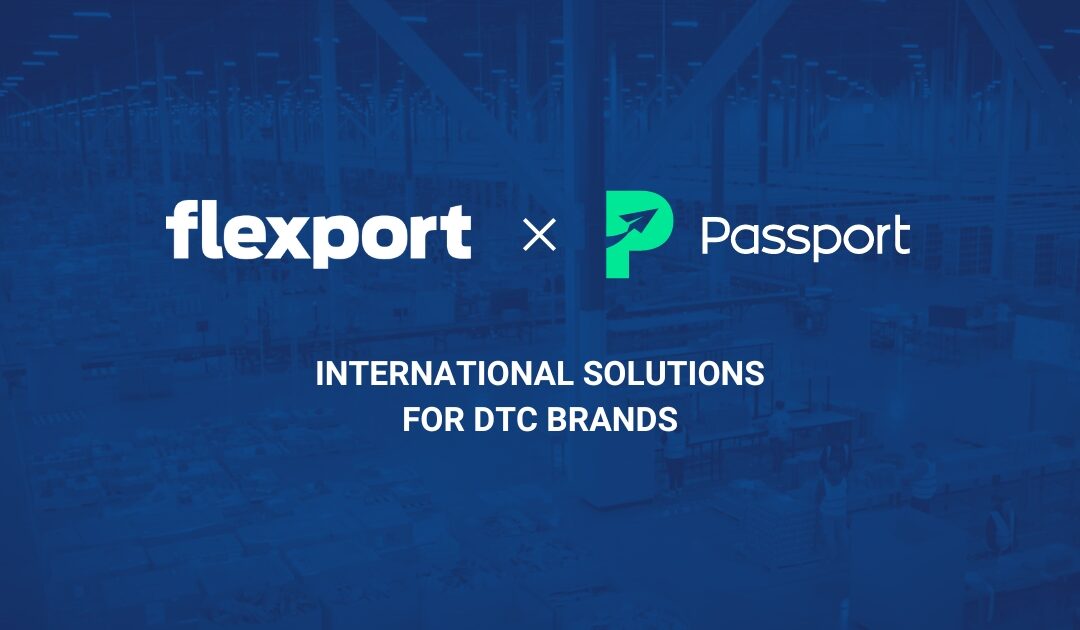As the health and wellness industry continues to gain global momentum, understanding the intricacies of international shipping and regulatory compliance is crucial for US vitamin and nutritional supplement brands seeking new revenue opportunities. In this article, we’ll cover the basics of shipping supplements internationally, offering key insights and practical advice to help navigate this dynamic landscape. We’ll also explore some of the top global markets and highlight specific import rules applicable to supplements in each region, equipping sellers with essential knowledge to start their global expansion journey.
The Basics of Supplements International Shipping
For ecommerce merchants shipping supplements internationally, it’s important to recognize each country’s regulations and customs requirements when crossing borders. We’ll review some of the most common considerations supplement brands should be aware of to ensure their products reach customers around the world without encountering compliance issues.
Prohibited or Restricted Ingredients
Being well-informed about prohibitions and restrictions in each country you ship to is essential for selling supplements internationally. Global markets can often have varying regulations that ban certain ingredients or impose limits on their quantities. For instance, while melatonin is commonly used as a sleep aid and available over the counter in the US, it’s classified as a prescription medication in the United Kingdom and cannot be sold as an over-the-counter supplement. Ensuring your products comply with the destination country’s regulations is essential to avoid complications during customs clearance.
Customs Documentation
Accurate customs declarations are critical in international shipping, requiring clear and transparent disclosure of a shipment’s contents and value. Proper product classification, detailed descriptions, and precise valuation are not only vital for meeting legal obligations, but also for avoiding delays, additional fees, or the risk of having your shipment confiscated. Additional documentation that may be necessary for customs clearance, such as import licenses or permits, will vary depending on the market. As an example, a manufacturer’s declaration may be required when shipping supplements to Australia to ensure compliance with regulatory standards and to verify product ingredients and origin.
Quantity Limits & Personal Use Exemptions
Many countries have specific rules regarding the amount of supplements that can be imported within a designated time frame. These regulations are often linked to a “personal use exemption” which generally applies to individuals importing products in small quantities for their own use and not for resale. In particular, countries like Canada and Australia limit supplement imports to a three-month supply. The implementation of this exemption, however, varies considerably across markets, making it imperative for ecommerce merchants to grasp these nuances.
Top Global Markets for Supplement Brands
As supplement brands explore global expansion, there are few regions that stand out as especially lucrative. We’ll highlight some of the best ecommerce markets to consider when shipping supplements internationally and provide an overview of relevant regulations in each.

1. Canada
Canada naturally emerges as the first choice for US ecommerce brands to target due to its close proximity, cultural similarities, and strong economic ties with trade agreements like the USMCA. For supplement companies, the rising interest in health and wellness among Canadians presents notably promising potential. This is highlighted by the projected annual market growth rate of 6.16% for vitamins and minerals from 2023 to 2028, as reported by Statistica. Additionally, the ease of doing business in Canada is facilitated by a shared language and strong consumer trust in US brands. Combined with substantial ecommerce penetration and high disposable income levels, these factors create a welcoming and profitable environment for US supplement companies to thrive in this market.
Supplement Import Regulations in Canada:
- Most vitamins and supplements are exempt from registration requirements in Canada as long as they are for personal use and are limited to a supply of less than 90 days.
- Certain ingredients could classify a product as a drug, subjecting it to stricter regulation. Health Canada governs Natural Health Products (NHPs), such as vitamins, minerals, and herbal remedies. All NHPs must be licensed, detailing their medicinal and non-medicinal ingredients, sources, doses, potencies, and uses, before they can be sold in Canada.
- Commercial supplement imports must meet licensing, manufacturing, labeling, and packaging standards, including having proper authorization and adhering to good manufacturing practices. Shipments are considered commercial if they are for retail sale or distribution, intended for resale, or exceed a 90-day supply (Remember, B2C shipments under a 90-day supply can benefit from a personal use exemption, simplifying the import process).

2. European Union & United Kingdom
The European Union (EU) and United Kingdom (UK) offer a combined reach of 31 countries, presenting a vast and highly appealing opportunity for supplement brands. These regions are characterized by health-conscious populations with a growing appetite for dietary supplements, a trend propelled by an increased emphasis on wellness and preventive healthcare. Demonstrating this robust demand, the European dietary Supplements Market is expected to climb from $20.26 billion in 2023 to $27.01 billion by 2028, according to a report from Mordor Intelligence. The EU and UK are also known for their well-established ecommerce infrastructures, providing effective channels to connect with a wide customer base, specifically beneficial for direct-to-consumer (DTC) brands. The regulatory landscape in these markets, though stringent, offers clear guidelines ensuring product quality and safety, traits highly valued by European consumers. Furthermore, despite some cultural differences, the widespread use of English and affinity for American products make it easier for US companies to establish themselves in Europe.
Supplement Import Regulations in the EU and UK:
- While regulations will vary by country, the EU and UK are known for having a strong focus on consumer health and safety in the supplement market, particularly in categories like weight loss and sexual wellness.
- Most items categorized as nutritional supplements, including vitamins, minerals, and amino acids, are regulated as foods, meaning they are typically subject to a personal import limit of 2kg.
- In the EU, supplements are commonly prohibited from containing substances like ephedra, kava kava, yohimbe, certain synthetic stimulants, and specific herbal ingredients such as akebia quinata, akebia trifoliata (mutong), and all aristolochia species, with limits also placed on the levels of vitamins and minerals. The use of unapproved novel ingredients or GMOs, as well as certain forms of amino acids and fatty acids are also controlled.
- Similarly, in the UK, strict guidelines include the prohibition of the weight loss agent Dinitrophenol (DNP) for human consumption and various banned or restricted herbal ingredients.
- Many EU Member States require commercial importers to register and notify the relevant health authorities in the country where the supplements are first marketed. Notification requirements can vary by market from simple label submissions to pre-market authorizations with a mandatory standstill period before the product can be introduced.
- If health claims are present, it’s important to ensure they are substantiated and approved.
- Selling to retailers and wholesalers requires labels in the local language with ingredient lists, nutritional information, dosages, allergens, and approved health claims.
- Depending on the destination country, a free sale certificate may be required to prove the supplements are legally sold in the country of origin and are safe for consumption.

3. Australia
Australia is another attractive market for ecommerce merchants shipping supplements internationally. One key reason is the high demand for health and wellness products among Australian consumers. With a society that places a strong emphasis on health, fitness, and outdoor activities, supplements such as vitamins, protein powders, and wellness products often see success in this market. A report from Insights10 predicts that the value of the Australian nutrition and supplements market will increase from $4.58 billion in 2022 to $9.81 billion by 2030, experiencing a 10% annual growth rate during this period. Additionally, comparable regulatory standards, cultural similarities, and a shared language between the US and Australia facilitate smoother entry for US brands and reduce barriers to customer engagement.
Supplement Import Regulations in Australia:
- Nutritional supplements are classified as complementary medicines and are subject to regulation as non-prescription drugs.
- There is a two-tiered system to assess the risk of complementary medicines. Lower-risk medicines can be listed on the Australian Register of Therapeutic Goods (ARTG), though it’s not mandatory for DTC brands. In contrast, higher-risk medicines are required to be registered on the ARTG.
- Most common ingredients found in US products are permitted, however, controlled substances such as hoodia, yohimbe, and DHEA are prohibited.
- An import license is usually not necessary for DTC shipments, provided the products are for personal use, the quantity is limited to a three-month supply, and the items are commercially prepared and packaged.
- Merchants may occasionally be asked to provide a manufacturer’s declaration on company letterhead to give Australian customs more details about the products being imported.
- While not required, it can be helpful to state on the packaging or receipt that the product was produced in accordance with Good Manufacturing Practices.
How to Ship Supplements Internationally
Shipping supplements overseas doesn’t have to be a challenge for US-based businesses. By partnering with an international solutions provider like Passport your global expansion can be effortless. With our extensive logistics capabilities, innovative technology, and tailored support from industry experts, we help brands deliver a seamless shopping experience to customers worldwide.
Passport’s in-house licensed customs brokers, trade advisors, and regulatory specialists are dedicated to guiding you through the complexities of selling supplements in international markets. We assist in determining product eligibility, properly classifying items, providing accurate goods descriptions, understanding country-specific import requirements, and keeping you informed of relevant regulatory updates. Let Passport handle the intricacies of international shipping and compliance, allowing you to focus on creating products that resonate globally.
Ready to start shipping supplements internationally? Get in touch with our team here.
Frequently Asked Questions
What are common challenges when shipping supplements internationally?
Shipping supplements internationally involves navigating import regulations such as quantity limits, providing accurate documentation, and ensuring compliance with prohibited or restricted ingredients. Each country has its own set of rules, making it crucial for merchants to be well-informed about the specific requirements of their target markets.
What documents are needed for shipping supplements internationally?
When shipping supplements internationally, accurate customs declarations are crucial, requiring proper classification, description of goods, and valuation. Additional documentation, such as import licenses or permits, may also be necessary depending on the destination market.
What supplement ingredients are commonly restricted in international markets?
Supplement ingredients commonly restricted in international markets include ephedra, kava kava, yohimbe, and certain synthetic stimulants. Additionally, specific herbal ingredients and substances like DHEA may be prohibited or limited. It’s essential to research the regulations of each target market to ensure compliance and avoid customs issues.
What are personal use exemptions for supplements in international shipping?
Many countries impose quantity limits on supplements to distinguish between personal use and commercial imports. Personal use exemptions typically allow individuals to import small quantities for personal consumption without facing commercial import regulations. Understanding these regulations is essential for brands shipping directly to consumers.
What are the top global markets for US-based supplement brands to expand to?
Canada, the European Union, the United Kingdom, and Australia are among the top markets due to their high demand for health and wellness products, established ecommerce infrastructures, and favorable regulatory environments for US brands.
What are the import regulations when shipping supplements to Canada?
When shipping supplements to consumers in Canada, products for personal use (less than a 90-day supply) are generally exempt from registration. However, certain ingredients may classify a product as a drug, subjecting it to stricter controls. Always check the latest regulations with Health Canada for natural health products to ensure compliance.
What are the import regulations when shipping supplements to Europe?
When shipping supplements to consumers in Europe, regulations typically require that most supplements be treated as foods, subject to a personal import limit (usually 2kg). While regulations vary by country, the EU and UK are known for their strong focus on consumer health and safety, especially in categories like weight loss and sexual wellness. Always verify the latest requirements with the relevant health authorities in each country to ensure compliance.
What are the import regulations when shipping supplements to the EU?
When shipping supplements to consumers in the EU, there is typically a personal import limit of 2kg. Commonly restricted ingredients include ephedra, kava kava, yohimbe, certain synthetic stimulants, specific herbs, and unapproved novel ingredients or GMOs. Limits are also placed on vitamins, minerals, amino acids, and fatty acids. Always check with the relevant health authorities in each EU country for the latest requirements to ensure compliance.
What are the import regulations when shipping supplements to the UK?
When shipping supplements to consumers in the UK, they are generally regulated as foods and subject to a personal import limit of 2kg. Commonly prohibited and restricted ingredients mirror the EU’s strict guidelines, particularly in categories like weight loss and sexual wellness. Always verify the latest requirements with UK health authorities to ensure compliance.
What are the import regulations when shipping supplements to Australia?
When shipping supplements to consumers in Australia, they are classified as complementary medicines and regulated as non-prescription drugs, with a personal use exemption for quantities up to a three-month supply. Commonly restricted ingredients include hoodia, yohimbe, and DHEA. Merchants may also occasionally be asked to provide a manufacturer’s declaration. Always check with Australian health authorities for the latest requirements to ensure compliance.
Where can I find the EU’s list of prohibited or restricted ingredients for supplements?
To find the EU’s list of prohibited or restricted ingredients for supplements, consult the Commission Regulation (EU) No 432/2012, which outlines permitted health claims on foods and supplements. Additionally, the European Food Safety Authority (EFSA) provides updates and guidelines on food safety and supplement regulations.
Where can I find the UK’s list of prohibited or restricted ingredients for supplements?
To find the UK’s list of prohibited or restricted ingredients for supplements, consult the UK Government’s Legislation on Food Supplements, which details regulations on permitted and prohibited ingredients. Additionally, the UK Food Standards Agency (FSA) provides updates and guidelines on food safety and supplement regulations.
Where can I find Canada’s list of prohibited or restricted ingredients for supplements?
To find Canada’s list of prohibited or restricted ingredients for supplements, consult Health Canada’s Licensed Natural Health Products Database (LNHPD), which provides information on permissible ingredients and their conditions of use. Additionally, the Health Canada website offers updates and guidelines on regulations for natural health products.
Where can I find Australia’s list of prohibited or restricted ingredients for supplements?
To find Australia’s list of prohibited or restricted ingredients for supplements, consult the Therapeutic Goods Administration (TGA) website. Specifically, refer to the TGA’s page on complementary medicines, which provides guidelines and information on permissible ingredients and their restrictions.
How do you ship supplements internationally?
Shipping supplements internationally involves understanding and complying with each destination country’s import regulations. Partnering with an international solutions provider like Passport can simplify the process by providing ecommerce brands with expert compliance support and cross-border logistics.
Can you ship supplements internationally?
Yes, you can ship supplements internationally, but it requires understanding and complying with each destination country’s import regulations. Partnering with an international solutions provider like Passport can help ecommerce brands navigate these complexities and ensure smooth shipping.




